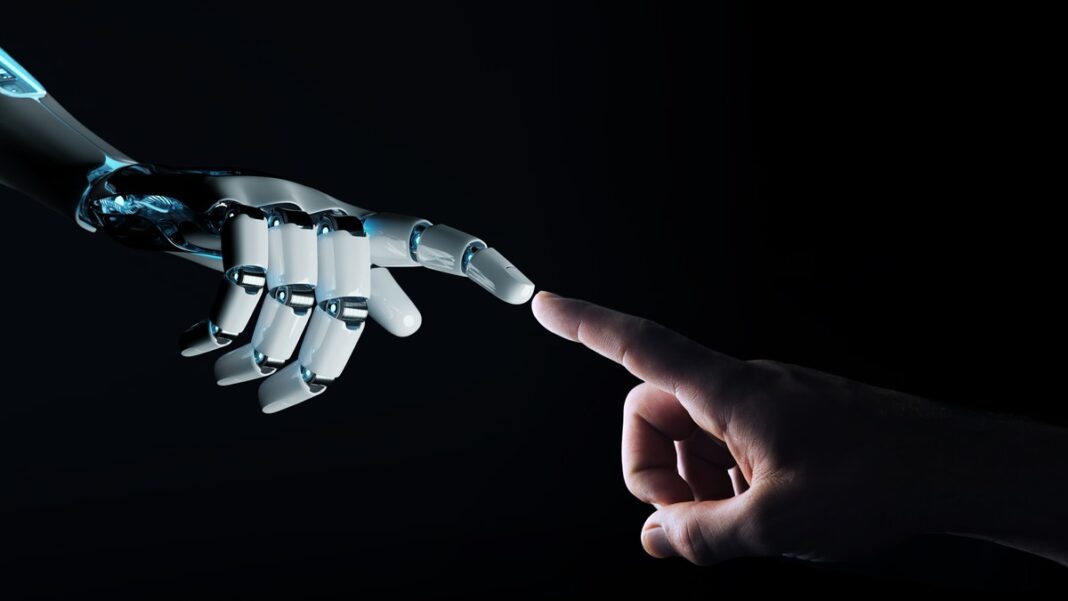New York, June 8 – Several start-ups are harnessing the power of artificial intelligence to fulfill the promise of staying in touch with loved ones even after their death. While these initiatives have garnered attention and interest, they also raise important ethical questions regarding the boundaries of AI technology.
Digital Conversations with Departed Loved Ones:
One poignant example is Ryu Sun-yun, who sits in front of a microphone and a giant screen, where her deceased husband appears. In a video demo, the man on the screen tells her, “Sweetheart, it’s me,” and in tears, she responds, initiating a semblance of conversation. This emotional connection is made possible through the efforts of start-up DeepBrain AI, which created a digital replica of Ryu’s late husband using several hours of video footage.
Joseph Murphy, head of development at DeepBrain AI, emphasizes that their program, called “Rememory,” does not create new content that the deceased would not have uttered or validated during their lifetime. He cautions that while this aspect of their business is not a growth area, they approach it as a niche offering.

Capturing Individual Wonder: The StoryFile Approach
StoryFile, another start-up in this field, employs 92-year-old “Star Trek” actor William Shatner to promote its site. According to Stephen Smith, the company’s CEO, their approach is to capture the essence of an individual and then employ AI tools to bring their presence to life. StoryFile’s Life service claims to have several thousand users who engage with their personalized conversational robots.
Entrepreneur’s Controversial Tweet Sparks Debate:
Pratik Desai, an entrepreneur, caused a stir when he suggested on Twitter that people should save audio or video of their loved ones to create autonomous avatars of the deceased. His tweet ignited a storm of controversy, leading Desai to later deny accusations of being “a ghoul.” Acknowledging the sensitive nature of the topic, he expressed sincere apologies for any distress caused.
Navigating the Ethical Landscape:
Stephen Smith of StoryFile acknowledges the delicate ethical considerations surrounding the use of AI technology to recreate deceased loved ones. He emphasizes that they approach this area with great care. Candi Cann, a professor at Baylor University researching this topic in South Korea, believes that interacting with an AI version of a person can provide closure, especially in cases where grief is complicated by abuse or trauma. However, Mari Dias, a professor of medical psychology at Johnson & Wales University, notes that many bereaved individuals express concerns about trusting AI and fear that it may say things they are not prepared to accept. The perceived lack of control over the avatar’s actions adds to their hesitations.

Virtual Clones for a Parallel Universe:
Somnium Space, a London-based company, is working on creating virtual clones of individuals while they are still alive. The goal is for these clones to exist in a parallel universe after their death. CEO Artur Sychov admits that this concept is not for everyone, acknowledging the profound philosophical challenges it presents. Using generative AI technology, these avatars can say things that were never uttered during their physical lives, blurring the line between reality and replication.
Read More: WhatsApp Enhances Image Sharing with New HD Quality Option
The Future of AI and Ethical Boundaries:
DeepBrain AI’s Joseph Murphy believes that the challenges surrounding AI’s role in recreating departed loved ones are primarily philosophical rather than technical. While they currently have no plans to cross certain boundaries, he acknowledges that the future remains uncertain. As the field progresses, ethical considerations will need to be carefully addressed to strike a balance between technological possibilities and societal norms.
As the discussion around AI-powered replicas of deceased individuals continues, it is clear that while these technologies offer the potential for emotional connection and closure, they also raise complex ethical questions. Striking the right balance between the potential benefits and the need for respect, consent, and emotional well-being will be crucial as we navigate the ever-evolving landscape of AI and its impact on human relationships.



